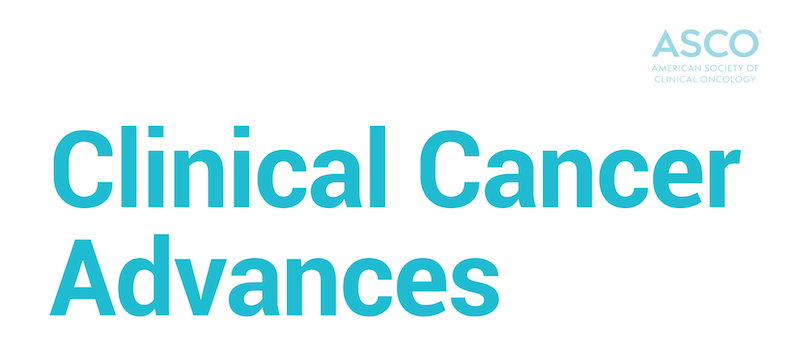American Society of Clinical Oncology (ASCO) Issues the 14th Annual Report on Progress Against Cancer
ASCO’s Clinical Cancer Advances 2019 highlights the most significant clinical research advances of the past year and identifies priority areas where research efforts should be focused to accelerate progress against cancer. The report was developed under the supervision of more than 20 experts of the editorial board in different oncology subspecialties, as well as cancer prevention, quality of care, health disparities, and tumor biology.
Since 1992, there has been a decline in overall incidence and mortality rates for all types of cancer in the US. Five-year survival rate continues to increase with 2 out of 3 people living 5 years or more after a cancer diagnosis and the projection to rise 31% by 2026, representing an increase of more than four million survivors in less than a decade. More than 130 new cancer drugs or indications approved by FDA since 2006. This progress is possible to a large extent due to cancer research, including the past year’s advances.
This year, ASCO names Progress in Treating Rare Cancers as the Advance of the Year. In the United States, rare cancers are defined as less than six of 100,000 diagnosed cancers and account for about 20% of all cancers diagnosed each year, though definitions and incidence rates vary worldwide. Progress has historically lagged behind the achievements made in more common cancers; however, five major studies this past year offer significant steps forward, making this a notable year for advances in rare cancers:
- A new combination of targeted therapies for a rare, hard-to-treat form of thyroid cancer (anaplastic thyroid carcinoma) produced responses in over two-thirds of patients.
- Sorafenib became the first treatment to improve progression-free survival for a rare type of sarcoma.
- 177Lu- Dotatate, a new therapy that delivers targeted radiation to tumor cells, lowered the risk of disease progression or death by 79% for patients with advanced midgut neuroendocrine tumors, compared to standard treatment.
- Trastuzumab, a standard treatment for HER2-positive breast cancer, significantly slowed progression of HER2-positive uterine serous carcinoma (HER2 gene is overexpressed in approximately 30% of uterine serous tumors).
- The first promising therapy – pexidartinib – for a rare cancer of the joints that typically occurs in younger adults and is known as tenosynovial giant cell tumor, showed an overall response rate of 39.3% vs. 0% for those taking a placebo.
Additional major advances include:
- advances in molecular diagnostics: the most significant achievement was made with the TAILORx breast cancer study which demonstrated that 70% of women with hormone receptor-positive, HER2-negative, node-negative breast cancer could safely forgo adjuvant chemotherapy, based on results from a 21 gene assay;
- new successes with targeted therapies, including the introduction of drugs that delay the progression of breast and lung cancers;
- growing microbiome research field which identifies specific bacteria possibly associated with the risk for certain head and neck cancers;
- further immunotherapy advances: expanding to cancers where there have been few immunotherapy treatment successes to date, a new FDA-approved combination immunotherapy regimen proven to boost overall survival in patients with renal cell cancer, an investigational PD-1 inhibitor with the promise for advanced squamous cell cancer of the skin, which has few other treatment options, longer-term data on adoptive cell therapy providing deeper insight on the benefits and risks of this approach in various blood cancers.
ASCO’s report also identifies priority areas for future research, which address an unmet need or help fill a knowledge gap in areas critical to improving patient care and outcomes:
- Identify strategies that better predict response to immunotherapies.
- Better define the patient populations that benefit from postoperative (adjuvant) therapy.
- Translate innovations in cellular therapies to solid tumors.
- Increase precision medicine research and treatment approaches in pediatric cancers.
- Optimize care for older adults with cancer.
- Increase equitable access to cancer clinical trials.
- Reduce the long-term consequences of cancer treatment.
- Reduce obesity and its impact on cancer incidence and outcomes
- Identify strategies to detect and treat premalignant lesions.
Separately, the report notes a widespread in the US misconception of the alternative medicine in treating cancer. According to the National Cancer Opinion Survey conducted by ASCO in 2018, nearly four in 10 Americans, or 39% (38% among caregivers to cancer patients and 22% of people who have/had cancer), believe cancer can be cured solely through alternative therapies, such as enzyme and oxygen therapy, diet, vitamins, and minerals. The survey also found that younger people (47% of survey respondents age 18 to 37 years and 44% of participants age 38 to 53 years) are the most likely to hold these views.
Read the full report at the ASCO’s website: https://www.asco.org/cca

